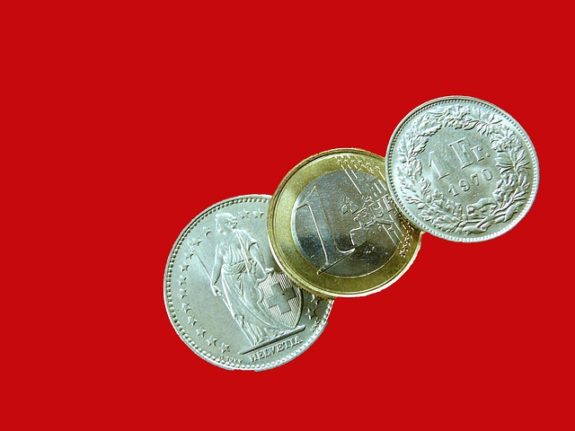In a move that is being hailed as “historic” by supporters at a time when the country’s ageing population faces surging living expenses, the newly-accepted ‘13th pension’ initiative now has to be implemented.
READ ALSO: Swiss voters approve boost to pension payments
This is what pensioners in Switzerland can expect in the coming years:
How much additional money will retirees receive?
For a full pension, single people will receive a supplement ranging from 1,225 francs to 2,450 francs per year — that is, an amount equal to their monthly first-pillar AHV / AVS pay.
Couples will receive up to 3,675 additional francs.
When will this measure take effect?
If you are hoping the 13th pension will kick in immediately, that is not going to happen; you will have to wait two years.
The new law will be implemented from 2026, which is a relatively short time, considering that many measures take years to be enforced after being accepted in referendums.
The reason for the delay of this particular new law is that the Federal Council must now decide where the extra money should come from (read more about this below).
How will the 13th pension be paid out?
It’s not yet clear, but several options will be explored.
So far, it is unlikely that the money would be paid all at once in December, according to Swiss media reports.
It could, for instance, be paid out in two installments during the year, or pro-rated and added to the AHV / AVS payment each month.
How much will the new measure cost?
This year, all the ‘regular’ first-pillar payments will cost 50 billion francs.
Once the new law goes into effect, however (that is, in 2026), an additional 4.2 billion francs will be needed.
This amount will increase as each additional generation starts to draw retirement benefits.
Where will the money come from?
As the government had warned ahead of the vote, the money that is currently in state pension accounts will not be enough, over the long term, to fund the additional payout.
In the immediate future, however, the situation doesn’t look dire — mostly thanks to the increase in the retirement age for women, which currently is 64.
But starting in 2025 and until 2028, Switzerland will gradually implement the same retirement age for women as for men — 65 — a move that is expected to boost coffers of the old-age pension scheme.
Another source of additional funding will be Value-Added Tax (VAT), which rose from the former rate of 7.7 percent to 8.1 percent at the beginning to 2024.
This extra funding, however, will not be enough in the long term, as more people retire and start drawing pensions.
This is where the burden of financing the pension scheme will fall on the younger generation.
One of the proposals of the supporters of the initiative is that employees’ and employers’ contributions to the AHV / AVS fund be increased by 0.4 percent from 2030 onwards.
Others propose introducing an inheritance tax for wealthy people. At this point, however, no definite financing plans exist.
Will foreigners in Switzerland benefit from the 13th pension as well?
Everyone who is legally employed in Switzerland and contributes into the obligatory state pension scheme will receive extra payouts, regardless of nationality.
One ‘weak’ point of the new law, as opponents have pointed out, is that all retirees in Switzerland — even those who are well off — and not just those who really need it, will receive this 13th pay.



 Please whitelist us to continue reading.
Please whitelist us to continue reading.
Member comments